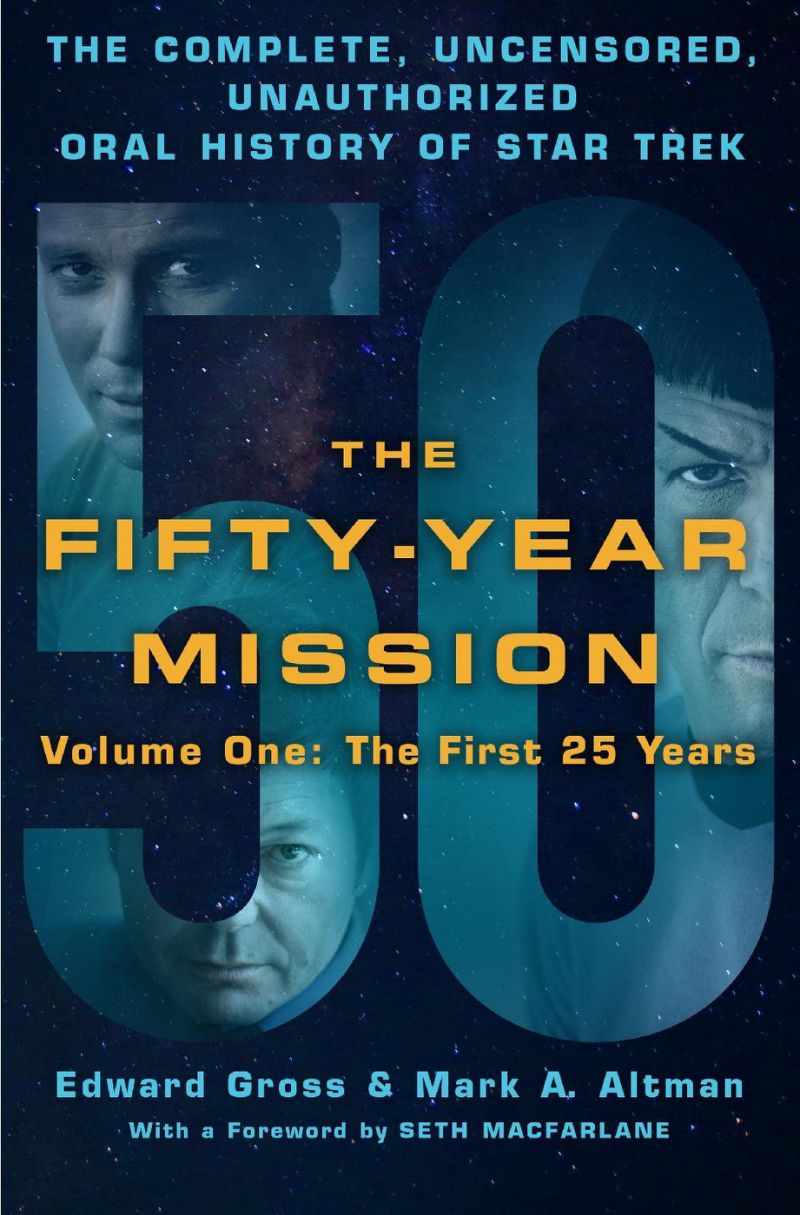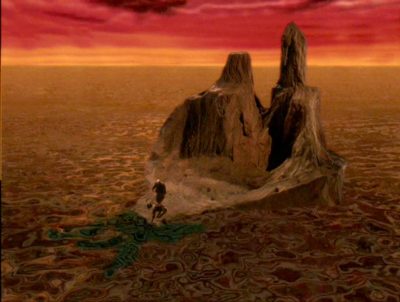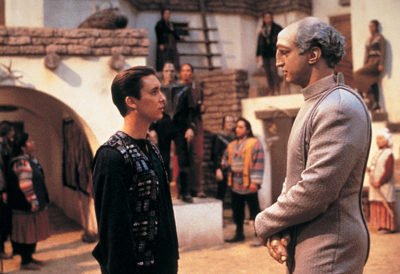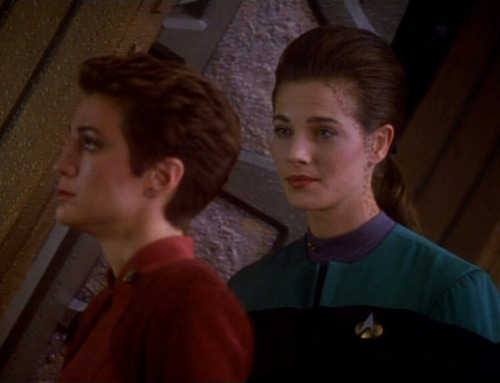ICYMI I recently had the opportunity to review the first volume of Mark A. Altman and Edward Gross’ The Fifty-Year Mission: Volume One: The First 25 Years. I had a few quotes I wanted to highlight that didn’t really fit into that broad review, starting with these two:
It’s the frontier that makes us Americans, and we have to have initiative and inventiveness and youth and strength and canniness to survive on the frontier – and also we also have to kill the Indians. ‘Space, the final frontier’ is really manifest destiny[…]
The show is sort of both modest enough to respect the indigenous aliens of off-worlds, but at the same time, we know in the end we have to show them how to do things and our values are better. It has the arrogance of American exceptionalism, even though we say we have the noninterference prime directive, but basically we’re going into these places and showing them ‘how to live right,’ which is very American, too
Thomas Doherty, professor of American studies, Brandeis University
So much to think about in this. When I saw the preview for Star Trek Beyond with the quote about the frontier “pushing back” I actually thought it was going to be about this perspective, about inhabitants of a border world who felt the down-sides of Federation expansion. That didn’t really happen, so while I loved Beyond, I was also glad to see this quote in 50 Year Mission to prompt more discussion.
While Trek espouses tolerance, diversity and non-interference (and that is extremely important) it’s not totally able to distance itself from the benevolent colonialist narrative Doherty refers to: preaching to others “how to live right” before you’ll help them. “Up the Long Ladder” is just the first example that springs to my mind.
But I think the second part of Doherty’s argument applies equally to European (particularly British) colonialism. Americans may have inherited it, but certainly going around the world thinking you know best, judging others as less-advanced, telling other people how to live, and backing it up with force if necessary, started before America became America.
What do others think about his argument?
The book has a little more of this kind of big-picture academic/cultural thinking about the importance of Star Trek, but it also has a lot of interesting behind-the-scenes commentary from those involved directly with the production on- and off-screen.
First up, here’s one from Dorothy Fontana:
One of the things about Star Trek is that so many of us came to it with no prior knowledge or experience with science fiction. Aside from some noted writers who did do scripts, most of us were virgin-fresh as far as science fiction went, and I believe it was one of the things that made Star Trek so good. We weren’t trying to do the hardware, we weren’t trying to do the science-fiction gimmicks, the flash. We were trying to do people stories.
D.C. Fontana
And her background explanation on the Vulcan 7-year mating cycle:
On ‘Amok Time’ I don’t remember if it was Gene Roddenberry, Gene Coon or [writer] Ted Sturgeon who came up with the idea of the Vulcan seven-year mating cycle, but the way we established it, Vulcans mate normally anytime they want to. However, every seven years you do the ritual, the ceremony, the whole thing. It’s a biological urge. This every seven-years business was taken literally by too many people who aren’t stopping and understanding. I mean, every seven years would be a little bad, and it would not explain the Vulcans of many different ages, which are not seven years apart.
D.C. Fontana
May have snort-laughed at this one:
My two script ideas had been pitched to the third season of the original series. Surprisingly, nothing was cut. In fact, the animated scripts were almost as long as the live-action scripts, but they played faster as animation, which provided the chance to do the stories in depth. The only thing we didn’t do was give Kirk a love affair in every episode. That gave us an extra twenty minutes per episode for more story and more action.
David Gerrold
And I’ll close with this lovely quote from Nichelle Nichols:
I tried to put into Uhura the qualities that I admire and demand of myself. Discipline, a forward attitude towards life and high demands. She’s head of all communications on that ship, so she’s not just sitting there pushing buttons. For her or anyone to be entrusted with that kind of responsibility I felt she had to have a strength and dignity and a command of authority very much like Spock has.
Nichelle Nichols
Looking forward to seeing what Volume 2 has in store!











